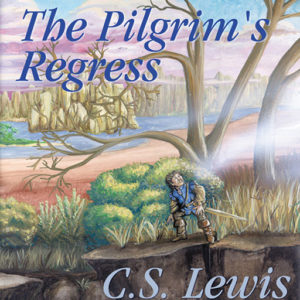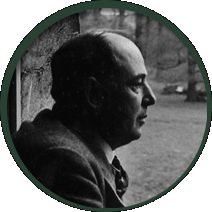 When C. S. Lewis was completing his degrees at Oxford in the 1920s, he was being bombarded at that time with all the new ideas floating around the intellectual world. One of these was Freudianism. As with most young people, at first he was somewhat taken in by such new thought, but he later dismissed it as a false theory of psychology. All one has to do is read his The Pilgrim’s Regress to get his wonderfully scathing diagnosis of its fallacies.
When C. S. Lewis was completing his degrees at Oxford in the 1920s, he was being bombarded at that time with all the new ideas floating around the intellectual world. One of these was Freudianism. As with most young people, at first he was somewhat taken in by such new thought, but he later dismissed it as a false theory of psychology. All one has to do is read his The Pilgrim’s Regress to get his wonderfully scathing diagnosis of its fallacies.
So when he saw literature critiques begin to follow Freudian concepts, he had to comment. In his essay “On Criticism,” he takes aim at such reviewers:
Another type of critic who speculates about the genesis of your book is the amateur psychologist. He has a Freudian theory of literature and claims to know all about your inhibitions. He knows what unacknowledged wishes you were gratifying.
Why did an author write the book in the way he/she did? Well, that author doesn’t really understand the unconscious wishes that made the book spring forth, the amateur psychologist boldly proclaims. And woe to anyone who tries to set the record straight:
By definition you are unconscious of the things he professes to discover. Therefore the more loudly you disclaim them, the more right he must be: though, oddly enough, if you admitted them, that would prove him right too.
And there is a further difficulty: one is not here so free from bias, for this procedure is almost entirely confined to hostile reviewers.
How can a reviewer know so much about an author’s “unconscious” wishes? Lewis analyzes the shaky ground on which such a reviewer takes his stand:
And it would not be unreasonable to point out that the evidence on which such amateur psychologists base their diagnosis would not be thought sufficient by a professional. They have not had their author on the sofa, nor heard his dreams, and had the whole case-history.
In other words, it’s pure speculation based on pretty much nothing solid.
 What these reviewers don’t seem to take into consideration, Lewis notes, are the conscious reasons an author has for writing what he/she does. No, these reviewers say, everything must emanate from the unconscious. Lewis skewers this perspective:
What these reviewers don’t seem to take into consideration, Lewis notes, are the conscious reasons an author has for writing what he/she does. No, these reviewers say, everything must emanate from the unconscious. Lewis skewers this perspective:
They seem to fancy that a book trickles out of one like a sigh or a tear or automatic writing. It may well be that there is much in every book which comes from the unconscious. But when it is your own book you know the conscious motives as well.
You may be wrong in thinking that these often give the full explanation of this or that. But you can hardly believe accounts of the sea-bottom given by those who are blind to the most obvious objects on the surface. They could be right only by accident.
So beware of fanciful speculation about an author’s intent, Lewis advises. Give the author some credit for knowing his/her reason for writing.
I wonder what an amateur psychologist/reviewer would say about my blog posts? My books? It might be fascinating, but most likely inaccurate.
